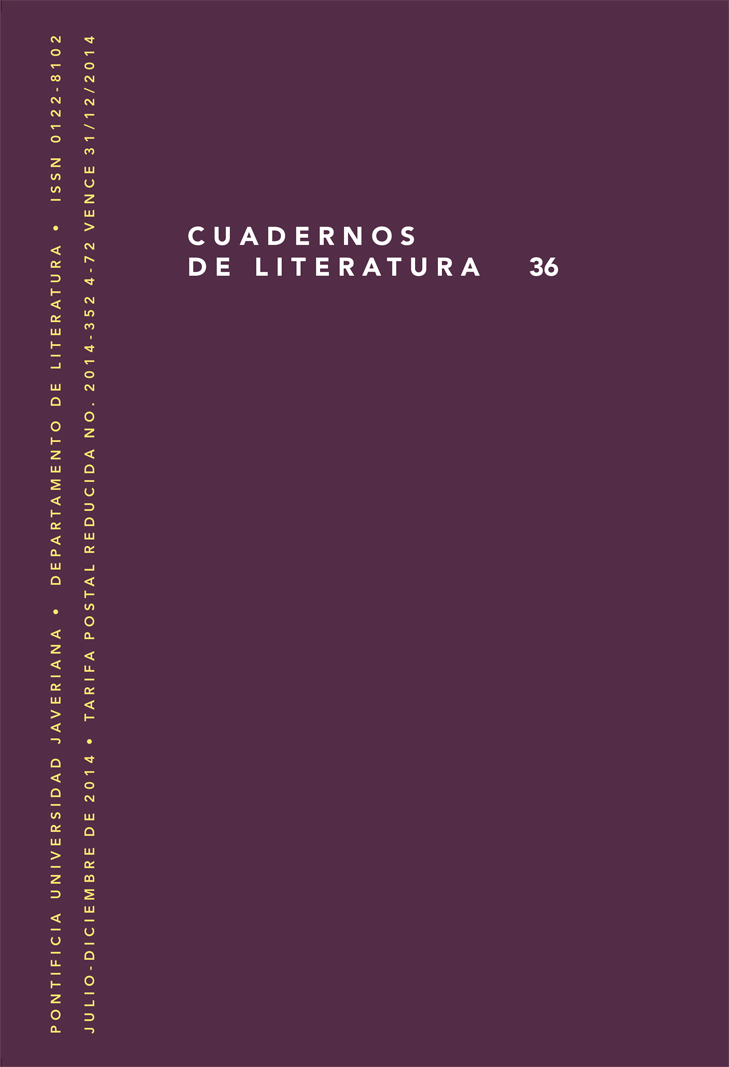Abstract
Extracto del ensayo: "Una vez que se extingan las ceremonias fúnebres y se adormezca el duelo, que se agoten los homenajes y las exequias, y se desdoren las figuras públicas y se olviden las antipatías abruptas o las declaraciones estertóreas, se volverá una con- vicción natural lo que algunos han vaticinado desde hace décadas: que los dos colosos surgidos de esa brillantísima Edad de Oro de la narrativa latinoamericana que se prolongó durante la segunda mitad del siglo XX fueron Jorge Luis Borges y Gabriel García Márquez. Los dos escritores más influyentes y poderosos de nuestra región y nuestra lengua. Los dos más admirados e imitados en el orbe. En ese juego de dualidades que tanto nos gusta, nuestro Platón y nuestro Aristóteles. O, mejor, nuestro Apolo y nuestro Dioniso"Cuadernos de Literatura is registered under a Creative Commons Attribution 4.0 International Public License. Thus, this work may be reproduced, distributed, and publicly shared in digital format, as long as the names of the authors and Pontificia Universidad Javeriana are acknowledged. Others are allowed to quote, adapt, transform, auto-archive, republish, and create based on this material, for any purpose (even commercial ones), provided the authorship is duly acknowledged, a link to the original work is provided, and it is specified if changes have been made. Pontificia Universidad Javeriana does not hold the rights of published works and the authors are solely responsible for the contents of their works; they keep the moral, intellectual, privacy, and publicity rights.
Approving the intervention of the work (review, copy-editing, translation, layout) and the following outreach, are granted through an use license and not through an assignment of rights. This means the journal and Pontificia Universidad Javeriana cannot be held responsible for any ethical malpractice by the authors. As a consequence of the protection granted by the use license, the journal is not required to publish recantations or modify information already published, unless the errata stems from the editorial management process. Publishing contents in this journal does not generate royalties for contributors.


